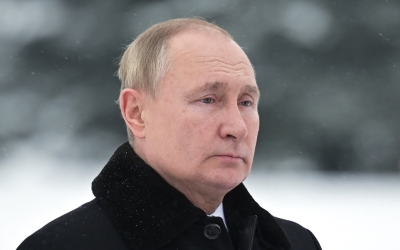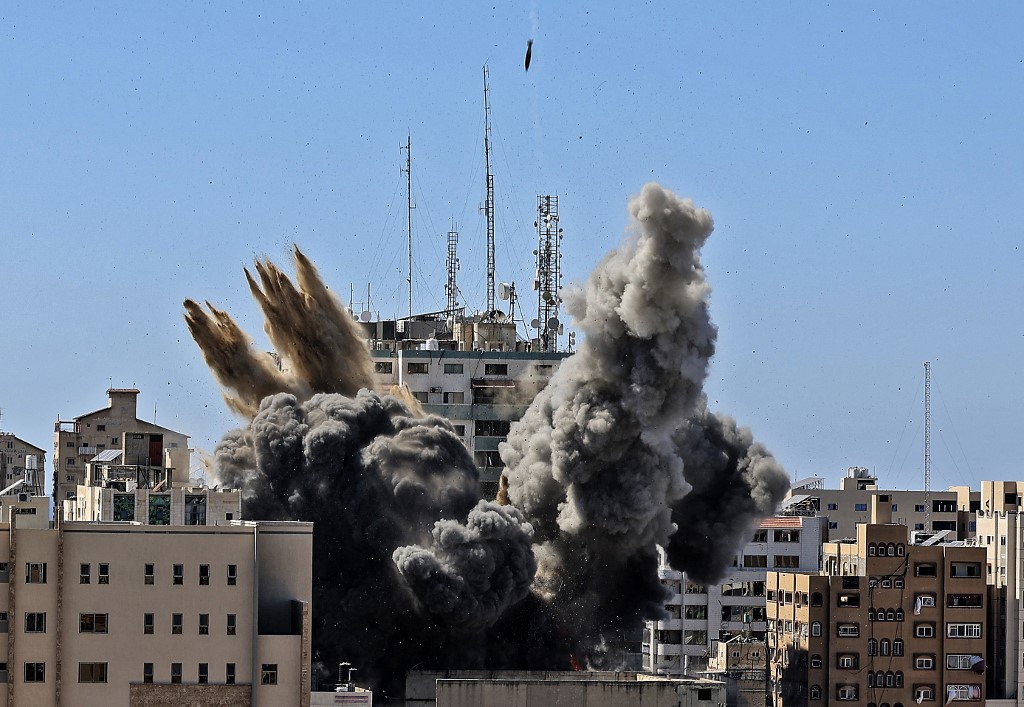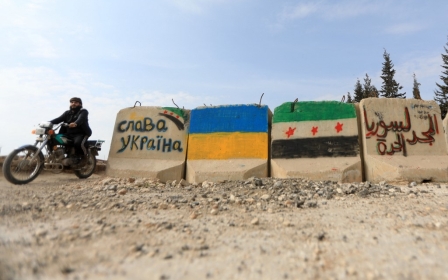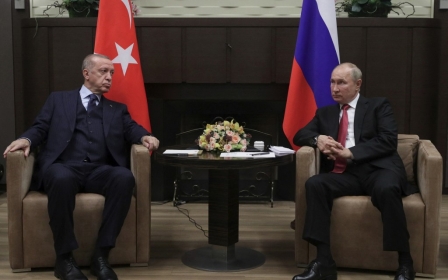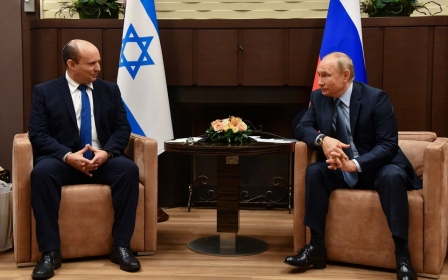Russia-Ukraine war: Putin has been brutally rebuffed in the Middle East
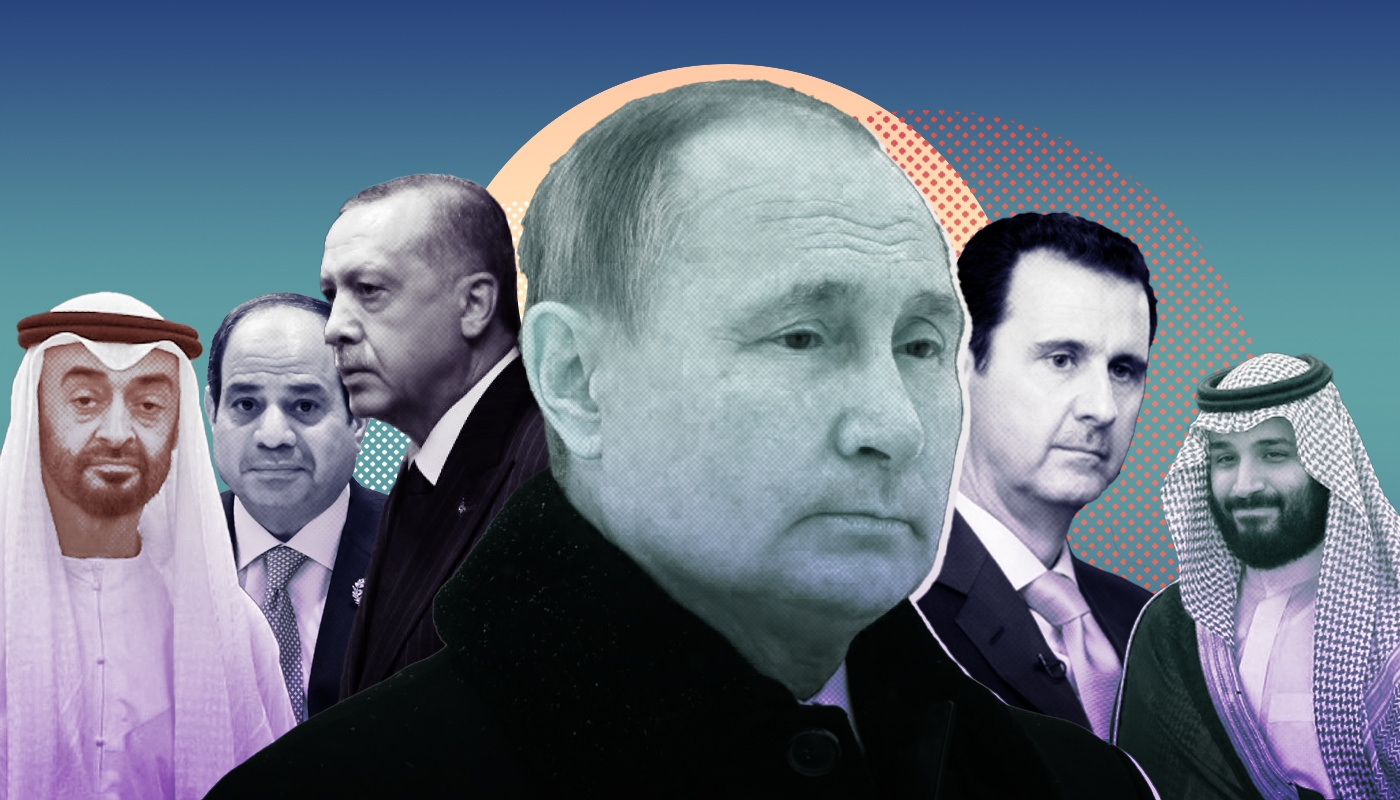
There’s nothing like a United Nations vote for obliging governments to put their hearts on their sleeves. Last week’s General Assembly debate on a resolution condemning Russia’s invasion of Ukraine forced states to come clean and reveal the bottom line on their usually murky list of foreign assets and liabilities.
It was the first emergency debate the assembly had held for 25 years and the headline result was that as many as 141 states supported the motion and only three states (apart from Russia and Belarus) allied themselves with Russian President Vladimir Putin’s aggression: Eritrea, North Korea and Syria.
It is no exaggeration to say that Russia has suffered the biggest regional blow to its interests since Anwar Sadat expelled Soviet advisers from Egypt exactly half a century ago
Protecting the principles of sovereignty and territorial integrity were the main issues at stake in the debate on the Ukraine crisis. But since the United States has cast itself as Ukraine’s most energetic international backer, the vote also required each country to make a complex calculation of national interest encapsulated in the dilemma of whether to support Washington or Moscow.
By this token, Russia’s isolation was dramatic. Its years of investment under Putin in forging close diplomatic as well as economic ties with the Middle East in the era of post-Cold War multipolarity were shown to yield little profit. Virtually every Middle Eastern state supported the UN condemnation of Russia, including Jordan, Kuwait, Lebanon, Oman, Qatar and Saudi Arabia.
So did Abdel Fattah el-Sisi’s Egypt, which Moscow has been energetically wooing. So did Recep Tayyip Erdogan’s Turkey. Even the UAE, which caused a minor sensation by sitting on the fence and abstaining in a Security Council vote on Russia a few days earlier, fell back into line. Once again, as in old times, the US was able to press its clients into a public display of loyalty. Russia, the eager suitor, was brutally rebuffed.
The only crumbs of comfort for the Kremlin were that Algeria, Sudan, Iraq and Iran sat on the fence and abstained. Morocco took the ultimate coward’s way out by abstaining from abstaining. It joined the shortlist of countries whose ambassador disappeared when it was time to decide, leaving the UN archive to declare “No vote recorded”.
Humiliating for Putin
Among the abstainers, the one which will have pleased Moscow most is probably Iraq. But its decision not to take sides between Russia and the US was not prompted by respect for Moscow. It reflected the struggle for dominance between pro-Iranian and pro-American faction leaders in the Baghdad parliament and government. Attitudes to Russia’s invasion of Ukraine played only a minimal role.
The three countries that Moscow sees as its most important interlocutors in the Middle East are Turkey, Israel and Iran. It must be humiliating for Putin that the leaders of two of them, Turkey and Israel, offered to mediate in the Ukraine crisis. Instead of being the dominant player and mediator, as it was in the 2020 conflict between Armenia and Azerbaijan over Nagorno-Karabakh, Russia is now a “mediatee”, a belligerent under international pressure to change policy and pull back. This is a dramatic and humbling diminution of status.
Putin had invested heavily in recent years in wooing Erdogan to loosen his ties to Nato and Washington. He sold Turkey the advanced surface-to-air S400 missile system. To the annoyance of Moscow’s ally Bashar al-Assad, he gave Erdogan the green light to invade northern Syria against the Kurds and prop up the Islamist defenders of the northwest province of Idlib.
In return, he has got little. Turkey condemned Russia’s invasion of Ukraine, which it denounced as a violation of international law. It closed the Bosphorus to four Russian warships which wanted to enter the Black Sea. It sold drones to Ukraine, which have been used against Russian forces. The only benefit Turkey has given Moscow is that it has not joined the US-led campaign of economic sanctions against Russia.
Ironically, apart from Syria, the Middle Eastern state with which Putin has the best relations in the aftermath of his unjustified and illegal invasion of Ukraine is Israel. The Israeli foreign ministry’s initial reaction to Russia’s attack on Ukraine was soft in the extreme. It did not mention Russia but merely expressed concern at “steps taken in Eastern Ukraine”.
Prime Minister Naftali Bennett has not denounced the invasion. This was Russia’s reward for its policy of consistently ignoring Israel’s frequent incursions into Syrian airspace to bomb Iranian and Hezbollah targets. Syria has become a land-bridge for Iranian military supplies to Hezbollah in Lebanon, but Russia allows Israel to attack them with impunity. Russia has also stopped the Syrian army from launching its S-300 surface-to-air missiles against Israeli aircraft.
Israel's position
As the Israeli journalist Roy Isacowitz has pointed out, “Israeli strategists draw a straight line between losing the Russian card in Syria and the unthinkable expansion of Iranian influence and power in both Syria and Lebanon. Is token condemnation [of Russia] really worth the price?”
A second reason for Israeli silence is the parallel that many observers draw between the ferocious Russian bombing of Ukrainian cities and Israeli bombing in Gaza. There is also the similarity, as Isacowitz says, “between Russia’s attempt to force its ethnic nationalism on its neighbours and Israel’s 50-plus-year policy of doing likewise”.
To Putin’s satisfaction, Israel did resist US pressure to co-sponsor the UN Security Council resolution condemning Russia. Although Israel cast its actual vote against Russia, Bennett was quick to fly to Moscow to explain Israel’s position and show the world that Putin was not isolated. But the Israeli prime minister’s offer to mediate cannot have pleased the Kremlin dictator, as I argued above.
All in all, Putin’s illegal invasion of Ukraine has left him with only one friend in the Middle East. Syria's President Assad cannot, for obvious reasons, bite the Russian hand which feeds him. Elsewhere, the war that Putin launched has been a disaster for Russia’s carefully constructed strategy of enhancing its image and influence. It is no exaggeration to say that Russia has suffered the biggest regional blow to its interests since Anwar Sadat expelled Soviet advisers from Egypt exactly half a century ago.
The self-inflicted wound will take decades to heal.
The views expressed in this article belong to the author and do not necessarily reflect the editorial policy of Middle East Eye.
This article is available in French on Middle East Eye French edition.
Middle East Eye propose une couverture et une analyse indépendantes et incomparables du Moyen-Orient, de l’Afrique du Nord et d’autres régions du monde. Pour en savoir plus sur la reprise de ce contenu et les frais qui s’appliquent, veuillez remplir ce formulaire [en anglais]. Pour en savoir plus sur MEE, cliquez ici [en anglais].



